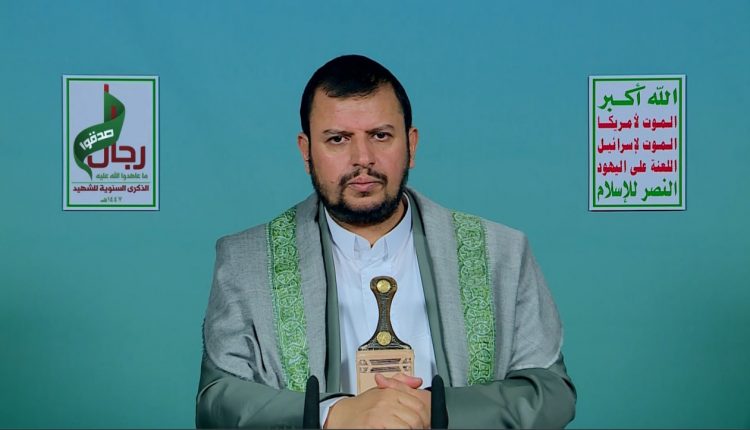Rebuilds Resolve and Preparedness
Sayyid Abdul-Malik Badr al-Din Al-Houthi’s address marking the annual Martyrs’ Day reaffirmed the spirit of defiance and steadfastness. It called on the Yemeni people to persist in resilience and to maintain full readiness for the coming confrontation with Israel and all those aligned with it. The speech grounded national mobilization in faith-based values, portraying jihad and martyrdom as the authentic way of life for the Muslim nation.
Sanctifying Martyrdom as a Central Value and a Source of Morale
The speech presents martyrdom not as death but as a divine privilege and an eternal reward. This reframing turns material loss into spiritual victory, reinforcing loyalty and collective belonging.
By emphasizing the exalted status of martyrs and their legacy, Al-Houthi constructs a narrative that re-sacralizes sacrifice, transforming it into a social glue that strengthens cohesion, lowers the fear barrier to participation in armed or missionary action, and raises overall popular responsiveness—converting loss into exemplary symbolism.
Condemning Submission as a Call to Collective Re-Empowerment
By linking surrender to the catastrophic consequences of past humiliations, the speech establishes a sharp dichotomy: the dignity of a free nation through jihad versus the disgrace of subjugation.
This binary acts as a psychological motivator—either join the proud, spiritually strong community or fall into the pit of defeat and historical tragedy.
The practical takeaway for the audience is direct: engage in mobilization, training, and resistance; reject any policy of concession—the historical cost of weakness has always been too high.
From Words to Action: Tribal and Popular Mobilization
The address praises tribal gatherings and urges the continuation of mass activities, translating rhetoric into a tangible field strategy.
This approach aims to activate the grassroots base—sustaining cycles of commemoration, training, and family support, expanding logistical and moral networks, and converting public enthusiasm into long-term mobilization projects.
Faith-Based Readiness and the Theology of Victory
By linking victory to both spiritual conviction and practical preparation, Al-Houthi provides a dual incentive: reassurance that victory is divinely promised, and insistence on constant material readiness.
This blend of faith and pragmatism encourages continuous training, military and moral education, and structured care for martyrs’ families as part of a sustainable framework of jihad.
The message is clear: readiness is not a temporary ritual but a permanent state to be built and managed.

